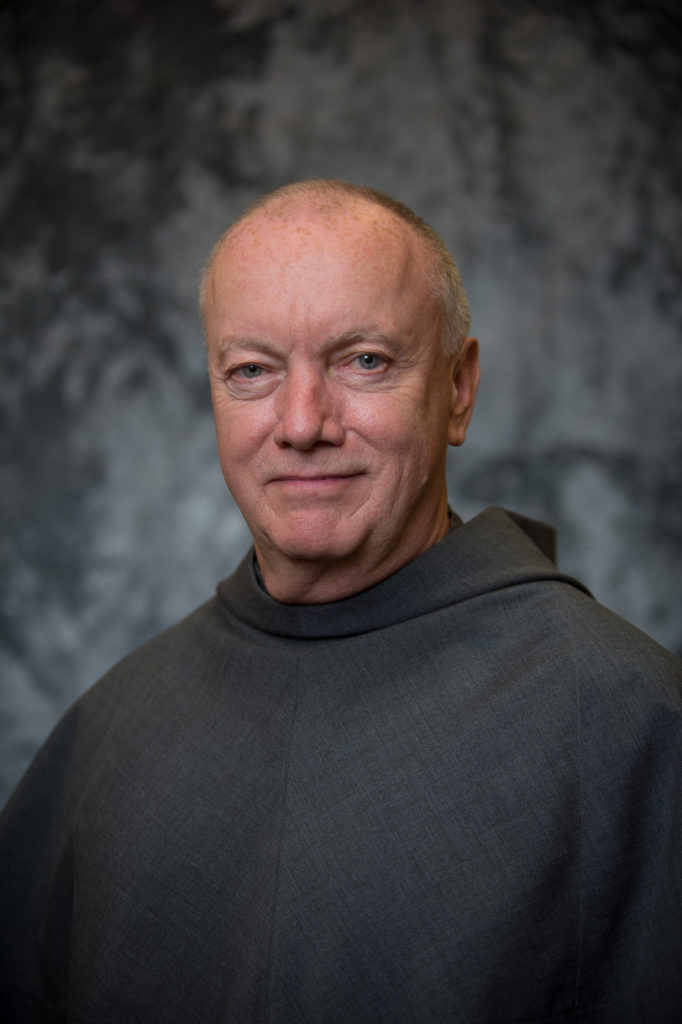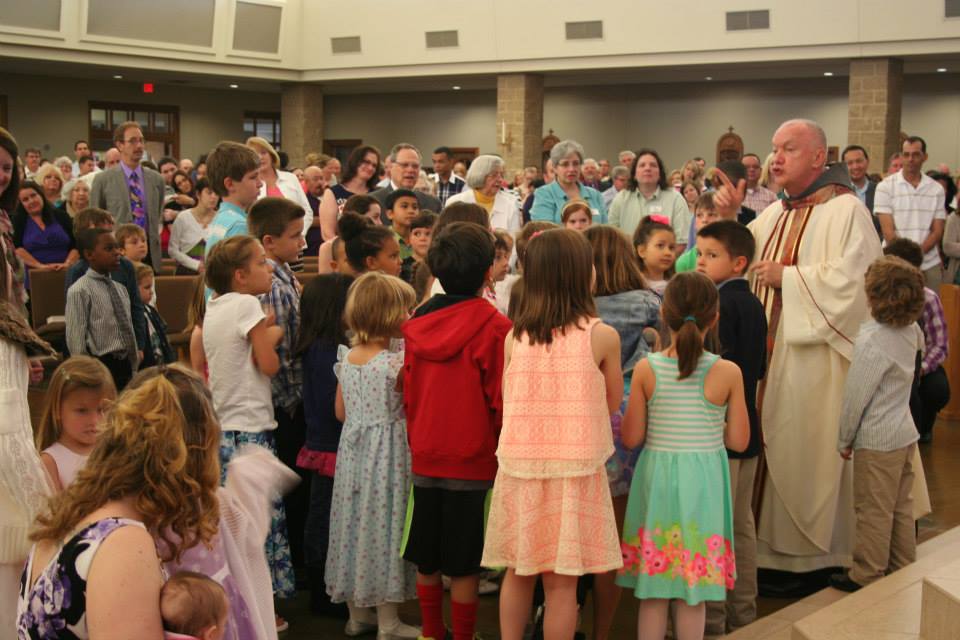 In his own words… Friar Paul Lininger, OFM Conv.:
In his own words… Friar Paul Lininger, OFM Conv.:
Conventual Franciscan Friars Responding to Real Needs
Helping to Turn Strangers into Neighbors
On February 21, 2017, Pope Francis in an address to the VI International Forum: Migration and Peace, felt compelled to address the nature of contemporary migratory movements, which increases challenges presented to the political community, civil society and to the Church, and which amplifies the urgency for a coordinated and effective response to these challenges. Our shared response, according to our Holy Father Francis, “may be articulated by four verbs: to welcome, to protect, to promote and to integrate.”
Have you ever wondered what it is like living in a world, city, or local neighborhood, where your very presence arouses contempt, suspicion, prejudice or common indecency? Where judgements are made of you based on the tone of your skin, the first language you speak or the accent present in your words? Where you as the stranger are literally untrusted, despised or rejected? Where your description begins with a negative – illegal? Where the term friend, neighbor, brother or sister are unspoken?
Sometimes we forget that the words we choose to identify another person do make a difference in whether they meet with our approval, are treated with respect and dignity or vilified and turned away.
Ever given a second thought, to what is to be in hand to enter your child’s school, pick-up a pharmacy prescription, enter a hospital, sit in a library or present when you use a credit card?
Most of us perhaps fail to ponder and take for granted that when a person, be they an officer of the law, pharmacist, teacher, sports coach or cashier, ask for a picture identification we readily show a driver’s license, passport or BJ’s / Costco ID which has a picture, address and baseline information stating who we are and where we live. It is not so easy for everyone.
Essentially, it is the reality of tens of thousands reaching into the millions now living within our country’s borders, cities, villages, towns and rural areas. They are the souls we greet in the market, on the streets, in our churches, work places and gatherings. They are the anawim of God, loved and cherished by Jesus, and named by him as our brothers and sisters.
As part of small but growing effort, the Blessed Sacrament Faith Community and the Conventual Franciscan Friars together with the local Burlington Police Chief, law enforcement officers, and a dedicated group of volunteers representing various religious traditions and families came together two years ago – May 2015 – hoping to make a meaningful dent into a lived problem. Namely, “How to help turn strangers into neighbors”. The result of our coming together was the formation of the Faith ID Card Task Force of Alamance County, linked to an expanding program here in North Carolina known as the FaithAction Network.
So What Is A Faith ID Card Program?
The Faith ID Card Program is a connected group of faith communities, nonprofits, and grassroots movements that recognize the urgency of valid ID cards for members of our community who may have limited access to government issued forms of identification, and the importance of creating a unified model and vetting process that community partners (law enforcement, health centers, schools, businesses, and other city agencies) can trust and use to better identify, serve, and protect all residents in cities across North Carolina and the United States.
The Blessed Sacrament Faith ID Card Program is part of the FaithAction ID Network. Shared hallmarks of FaithAction ID network programs include:
- Ensuring each program has a strong home base that can effectively communicate and coordinate a community ID drive with staff and volunteers
- Utilizing the same policies, procedures, and vetting process to receive an ID card
- Ensuring partnership with local law enforcement and other community partners who formally agree to support the program and attend ID drives
- Utilizing the 4 stage ID drive model in a large, safe space (welcome, orientation, document check, photo/computer intake)
- Facilitating dialogue throughout the ID drive between ID participants and law enforcement and other community partners with the goal of building greater understanding, trust and cooperation
- Providing the same or similar look as other network programs on the front of the card, and signifying you are a part of the FaithAction ID network on the back
- Printing and distributing hundreds of ID cards within two weeks of each drive, and securing the personal information of all participants
*There may be some flexibility and unique characteristics of each program, depending on the needs of each community. *All participants must attend a mandatory orientation at an ID drive, and provide proof of photo identification (passport, foreign national ID card, driver’s license, matricula consular) and proof of address (utility bill, bank statement, current rental agreement, medical record) in order to receive an ID card from a FaithAction ID Network member.
Finally, network members believe it is crucial we continue to work for a driver’s license for all residents at the state level, as well as lasting immigration reform at the federal level. In the meantime, we believe community ID programs represent a very important step forward in creating safer, more inclusive, and united communities for all – a much needed example of positive collaboration at this divided time in our nation’s history.
To date, the Faith ID Card Program here in Burlington, NC, has distributed over 5000 Faith ID Cards. The challenge now is to keep moving forward towards the realization of its mission and vision, a place where strangers become neighbors.

Friar Paul is the pastor of Blessed Sacrament Catholic Community, in Burlington, NC
